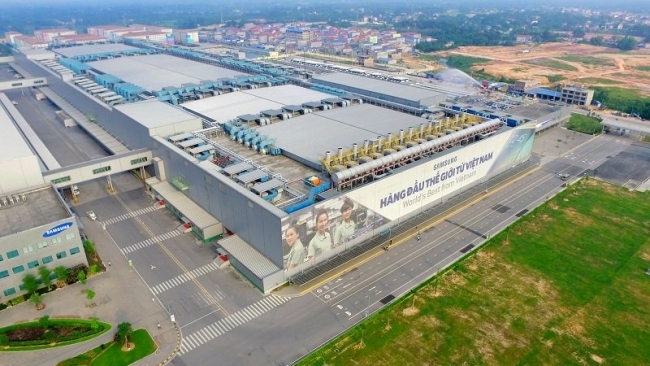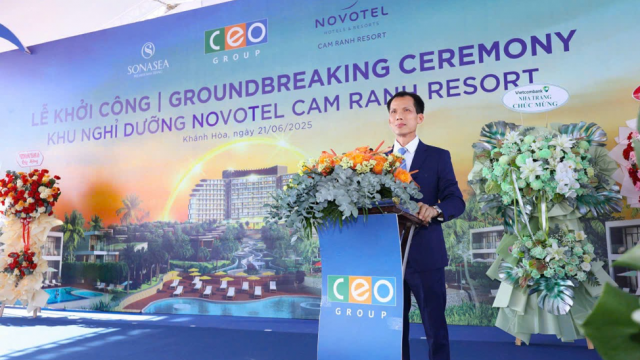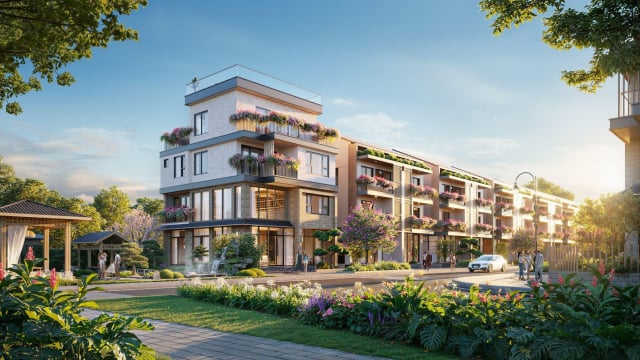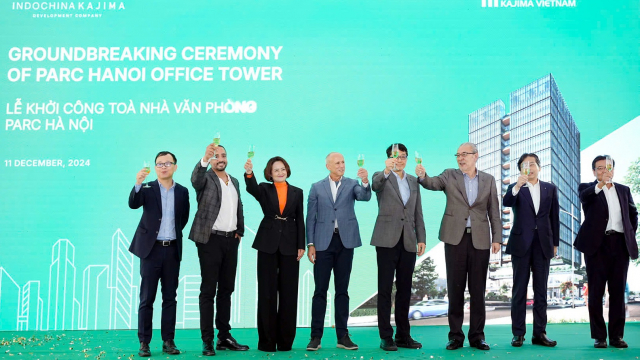Property
Vietnam gains owing to China's adjusted business policies
Vietnam has established itself as one of the brightest manufacturing hotspots within South East Asia partly due to the relocation of Chinese companies to Vietnam, according to JLL.

According to real estate and investment manager Jones Lang Lasalle (JLL)'s newly released white paper providing a comprehensive overview of the industrial real estate market, this phenomenal growth can be attributed to Vietnam establishing itself as an export-driven economy, dedicated industrial and economic zones and numerous free trade agreements (FTAs).
These initiatives have led to significant investment by large foreign companies. The best case study is Samsung who has reportedly invested over $17 billion in Vietnam.
In addition, production cost in Vietnam is lowest in ASEAN and also lower than China with just under $1 per hour; meanwhile, the cost of land prices in China is rising.
China continuing its move away from labor-intensive industries and moving up the value chain has led to Chinese companies relocating to South East Asian countries, including Vietnam.
Trade Wars between China and the US could have a twofold impact. On the one hand, it expedites the movement of companies from China to Vietnam. On the other hand, trade wars will increase the price of goods which could slow global consumption reducing output for exporters.
Besides, Vietnam is establishing itself as an export-driven economy and encourages business in this sector. This is demonstrated by the establishing Industrial and Economic Zones in the North, Central and South regions and the country entering into 18 FTAs that has created a business-friendly environment for domestic and foreign companies.
Vietnam is strategically located between China and Singapore with 3,260 km of coastline, providing excellent access to Vietnam's East Sea, one of the major shipping routes in the world. Roughly, 40 per cent of cargo transported from the Indian Ocean to the Pacific cross the East Sea before arriving in China, Japan, South Korea and the United States.
Challenges to Vietnam's development of the industrial real estate
According to JLL Vietnam's Head of Markets Trang Bui, to move up a new ladder in the industrial park/logistics development cycle and become more attractive and competitive than in other countries in the region, Vietnam should continue to invest heavily in infrastructure development.
Particularly, the implementation of administrative procedures required in the export and import of goods are ineffective and prolonged, affecting the operation of the industrial zones. Also, the number of skilled workers in Vietnam is too low.
One of the challenges for Vietnam over the next few years will be the ability to adapt and embrace the inevitable disruption and changes brought about by technology and automation, now commonly known as Industry 4.0. Trang said that Vietnam is still in the lowest stage of the world's industrial real estate.
"Vietnam is establishing itself as the industrial powerhouse within Southeast Asia and as we have witnessed in other countries around the region, we expect the industrial market will enter a new phase and move up the value chain in the future, moving away from labour intensive to capital intensive," Stephen Wyatt, country head of JLL Vietnam.
Formosa Ha Tinh expects $3.5 billion revenue per year
Hai Phong industrial property powers up with new project from Indochina Kajima
The project Core5 Hai Phong from Indochina Kajima and Itochu Corporation will deliver approximately 80,000 square metres of world-class ready-built factory for lease, handover expected in the first quarter of 2027.
A decade of unprecedented apartment price surge
A decade of relentless apartment price growth has pushed the dream of homeownership further out of reach for Vietnam’s middle- and lower-income earners.
Essensia Parkway sells out within hours, marking an outstanding partnership with WorldHotels
Essensia Parkway makes significant impact in the high-end real estate market as 100 per cent of the limited collection was successfully registered within just a few hours at the launching event with the theme “Live lux-well, in a truly refined world”.
Essensia Parkway gains global prestige through WorldHotels - Phu Long collaboration
Essensia Parkway is set to mark a significant milestone as the first branded residences project in Ho Chi Minh City to be operated by WorldHotels – one of the finest portfolios of independent hotels and resorts within BWH Hotels.
Indochina Kajima breaks ground on Grade A office building in Hanoi’s emerging hub
Parc Hanoi marks Indochina Kajima's first office-for-lease project in its $1 billion investment plan in Vietnam.











































